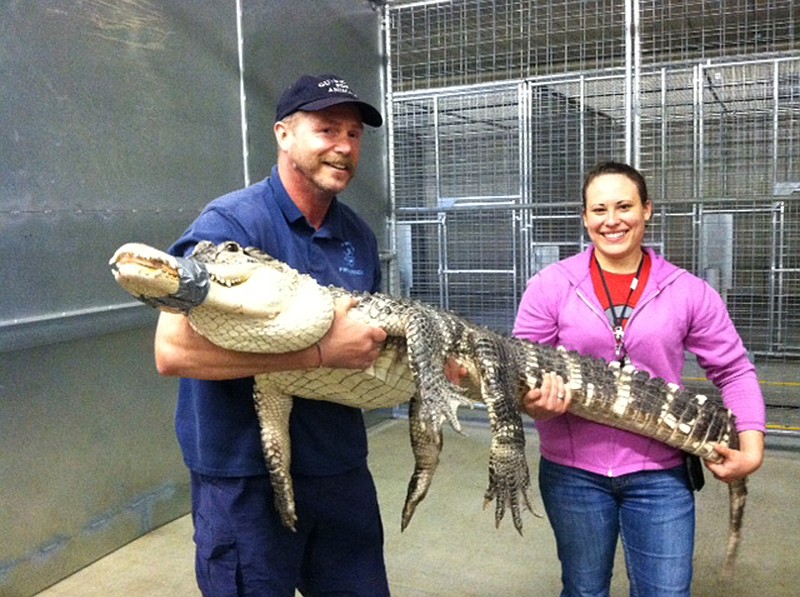COLUMBUS, Ohio (AP) - It turns out doughnuts, dog food and Gatorade are bear necessities.
At least those were the preferred foods of Dewey, a 400-pound Asiatic black bear temporarily housed at a state facility in Ohio.
The building holds wild creatures confiscated or surrendered under Ohio's exotic animal law, which was strengthened following the release of dozens of animals including lions and tigers by their suicidal owner in 2011 in Zanesville. Authorities fearing for public safety killed most of the animals in a headline-capturing saga.
At least five alligators and two bears have come through the state's roughly $3 million facility since it opened in February. Ohio's agriculture department then looks for permanent housing for the critters in sanctuaries or zoos.
Groceries and supplies for the hungry boarders have topped $1,025 since the end of May, according to records obtained by the Associated Press through a public records request.
Items included a 20-inch jungle ball for the bears bought online for $225 and five, 5-foot kiddie pools for alligators from Wal-Mart for about $74.
Feeding logs show Dewey and an American black bear named Boo Boo weren't light eaters.
Dewey's meals included chicken breast, nuts, cookies and bagels. Boo Boo, a female who weighed 250 pounds, enjoyed hot dogs, lettuce, corn and fish.
Both bears had poor diets before they arrived. Sixteen-year-old Dewey ate like a teenager, munching on pizza and drinking Mountain Dew.
The state initially got food for the bears through an agreement with the Columbus zoo, though Dewey turned up his nose at the nutritious chow.
"In this particular case, we felt like it was more important to keep them on the food that they liked," said Erica Hawkins, a spokeswoman for Ohio's agriculture department.
State veterinarians eventually worked more wholesome items into their diets, she said.
Both bears left this month for a sanctuary in Colorado. The department expects to see more creatures after Jan. 1, when Ohio's law allows officials to take away dangerous wild animals if their owners don't meet state requirements to keep them.

